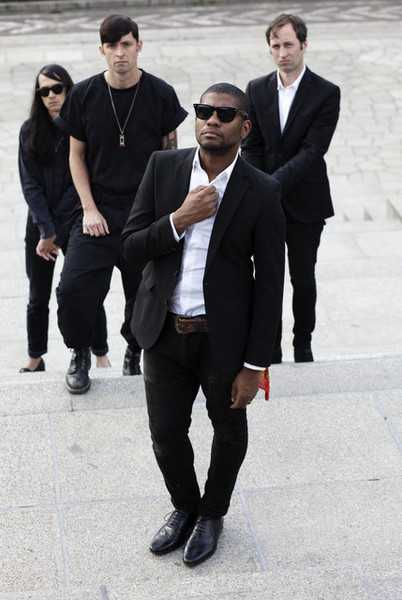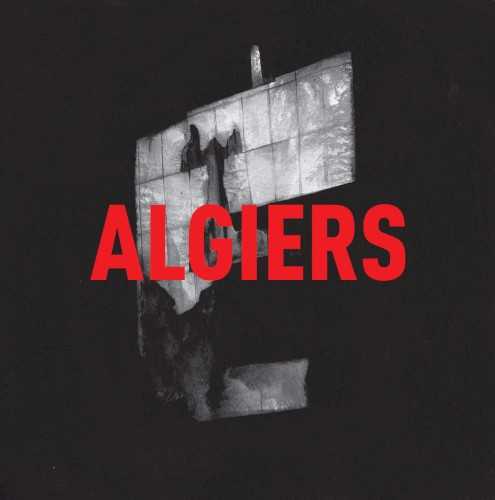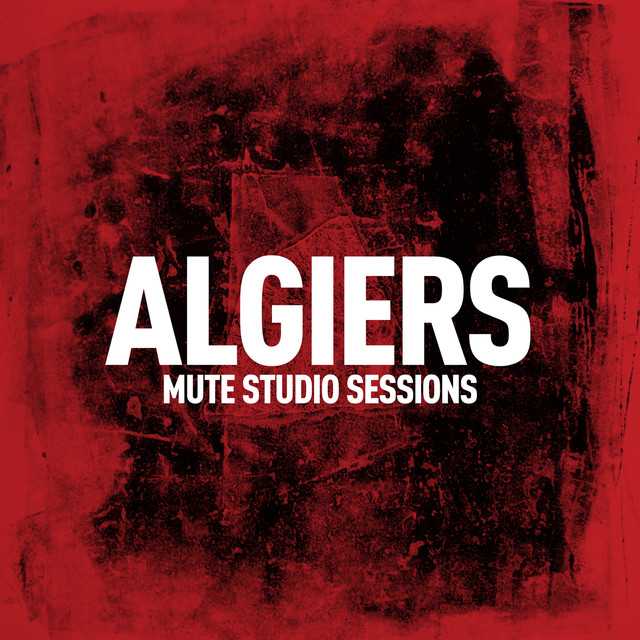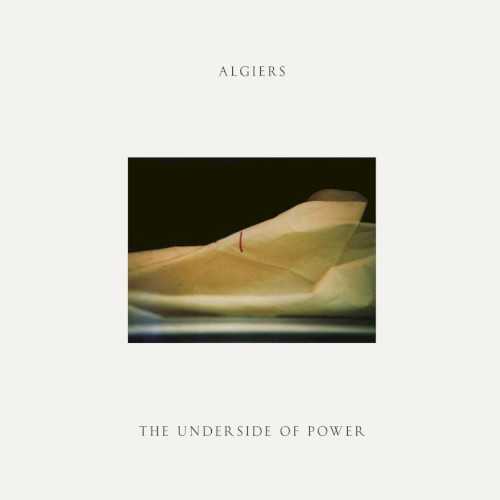Algiers | ||
| Allmusic Biography : Algiers are a politically conscious indie rock trio who combine elements of post-punk and no wave with blues, gospel, and even early industrial music. They are based in New York City and London, England. The band came together in 2009 in Atlanta, Georgia when guitarist Lee Tesche and bassist Ryan Mahan, both members of the citys thriving underground rock and noise scenes, encountered vocalist and guitarist Franklin James Fisher, whose own musical roots were in the grand black gospel tradition of the Deep South, the soul-blues of Nina Simone, and angular funk. All of its members play percussion and keyboards, and do drum programming. Their songs actively engage in cultural critique by commenting on traditions in political, social, and religious realms. The trio began rehearsing and playing shows together, combining their various influences and coming up with a hybrid sound of their own that also included dub, punk, and Afro-funk. Though all three went to various schools overseas, they stayed in touch via email, and worked together over the internet to discuss music, influences, and politics. Their first single, "Blood," was recorded in studios in London and New York, and released in 2012 in a limited pressing of 500 copies. It sold out quickly and the band drew critical notice for their high-energy live performances, as well as their unique hybrid sound. A second single, "Claudette," was tracked over the next couple of years and appeared in 2013. Matador discovered the band through its website and signed them in January of 2014. In April they went to work on their debut full-length. Mahan and Tesche lived in London, and Fischer resided in New York. He traveled to the U.K., and with British producer and engineer Tom Morris, the trio completed the set at 4ADs studios. The self-titled album included newly recorded versions of their first two singles; it was advanced by the tracks "But She Was Not Flying" and "Black Eunuch." The completed album was issued in June of 2015. After it received universal critical acclaim, Algiers toured relentlessly with new drummer Matt Tong added to their ranks, encountering not only fans but establishing deep connections with musicians across the spectrum, all of which came in handy as the band set to work on their second album amidst the cross-continental tumult of the Brexit vote in the U.K. and the U.S. election of Donald Trump. Mahan explained: "This album was recorded in a political environment that collapses the late-70s economic crisis and the looming onslaught of arch-conservative neoliberalism, via Thatcher and Reagan, into the late 1930s, a world riven by fascist nationalism and white power fantasies in the U.S. and abroad." Entitled The Underside of Power, the set was produced by Adrian Utley and Ali Chant of Portishead and mixed by Randall Dunn (Sunn O)))), with post-production from Ben Greenberg (the Men, Hubble). The advance title-track single and video were issued in April of 2017 with the full-length following in June. | ||
 | Album: 1 of 3 Title: Algiers Released: 2015-05-27 Tracks: 10 Duration: 41:56 Scroll: Up Down Top Bottom 25% 50% 75% Spotify Allmusic AlbumCover | 1 Remains (03:05) 2 Claudette (03:31) 3 And When You Fall (03:41) 4 Blood (05:38) 5 Old Girl (04:24) 6 Irony. Utility. Pretext. (04:30) 7 But She Was Not Flying (03:58) 8 Black Eunuch (03:39) 9 Games (03:49) 10 In Parallax (05:41) |
| Algiers : Allmusic album Review : Algiers is a transcontinental trio of multi-instrumentalists who first came together in Atlanta in 2009 before moving to separate places and continuing to make music via the internet. Matador signed them after two striking independently issued singles. Algiers sound is rife with references that smear together in a soundscape that reasserts (not recombines) musical traditions in a visceral, militant, spiritual way: the striated post-punk of a Certain Ratio, the agit-prop funk attack of the Pop Group, angular, elastic guitar screes à la Gang of Four, the pulsing industrial crunch of Suicide, the hard psychedelic soul of the Temptations, raw Georgia gospel circa the Elders of Zion, John Lee Hookers early boogie, and the lonesome wails of chain gangs and field hollers. The album was co-produced by Algiers and Tim Morris at 4ADs London studios. In "Remains," lead singer Franklin James Fisher lays out a gospel wail, "Were youre careless mistakes/Were the spirits youve raised/We are what remains," framed by brooding, low-end keyboards, stacked handclaps, looped kick drums, and a groaning backing chorus (provided by himself and his bandmates). Fishers startling vocal chops come right out of the black church; his worldview has been formed by international struggles for racial and class equality. Hes answered by Lee Tesches spiky guitar shards and Ryan Mahans jolting bassline with disruptive, brittle drum programming and Mancunian-esque synth skeins. "Claudette" melds howling soul, digital dub, and butt-shaking bass funk to screaming guitar feedback atop wafting Wurlitzers and chanted and crooned gospel vocals. "Blood" uses hypnotic, reverbed bass, drum loops, handclaps, call-and-response gospel, and slow, disruptive, blues guitar as Fisher intones "Four hundred years of torture/Four hundred years a slave/Dead just to watch you squander/What we tried to save...So drown in entertainment/Cause all our bloods in vain." His lyrics address personal and collective alienation in the 21st century, where history has been all but erased, but his refusal to be silenced and his demand to be heard -- and seen -- on his own terms extend the continuum for the historical struggle for justice. The use of dub piano on "But She Was Not Flying" (which recalls Mikey Dreads on The Clashs Sandinista! and Dennis Bovells on Y) adds a skeletal melodic frame to the clashing of the instrumental and vocal rhythms. In "Black Eunuch," shame becomes a motivating factor for an awakened sense of resistance and refusal. Militant handclaps, chunky funk guitar, wrangling basslines, and distorted backing vocals fuel his soaring, wrenching vocal. The Suicide-esque keyboard pulse is answered by frantic Afrobeat guitar and a thrumming bass charge. "In Parallax" is a harrowing, apocalyptic redemption song. Massive moaning and groaning choral vocals are fueled by crunchy loops and fingerpicked electric guitars. Algiers, both band and album, offer musical and topical intensity alternately malevolent and passionate in searching and affirming truth, human and otherworldly. All of these seemingly disparate historical musical elements are distilled in such a startling manner, they carve something new from the fragments. This is a stunning debut. | ||
 | Album: 2 of 3 Title: Mute Studio Sessions Released: 2015-12-04 Tracks: 3 Duration: 13:43 Scroll: Up Down Top Bottom 25% 50% 75% Spotify AlbumCover | 1 Blood (05:55) 2 But She Was Not Flying (03:28) 3 Remains (04:20) |
 | Album: 3 of 3 Title: The Underside of Power Released: 2017-06-23 Tracks: 12 Duration: 44:24 Scroll: Up Down Top Bottom 25% 50% 75% Spotify TrackSamples Allmusic AlbumCover | 1 Walk Like a Panther (03:10) 2 Cry of the Martyrs (04:03) 3 The Underside of Power (04:12) 4 Death March (04:31) 5 A Murmur. A Sign. (03:43) 6 Mme Rieux (03:34) 7 Cleveland (03:46) 8 Animals (02:33) 9 Plague Years (02:52) 10 Hymn for an Average Man (04:11) 11 Bury Me Standing (02:23) 12 The Cycle / The Spiral: Time to Go Down Slowly (05:25) |
| The Underside of Power : Allmusic album Review : On their self-titled debut, Algiers militantly asserted that the sound of resistance could be "musical" and that familiar sources could be utilized to create something groundbreaking. The Underside of Power goes even further. As a band, Algiers is not easy to define, and their music here -- which offers a perfect soundtrack for the disbelief and disillusionment of the Brexit vote and the ensuing rage and paranoia resulting from Donald J.Trumps election -- is equally mercurial, but not limited sonically or topically. With drummer Matt Tong now an official member, and producer Adrian Utley acting as one, this album extends the bands reach to accept (not always willingly) a new, disturbing, and dystopian frontier -- but also the hope to transcend it. In opener "Walk Like a Panther," Franklin James Fishers howl of indignation and pain voices what his mind perceives as a seemingly impossible realization: "We won’t be led to slaughter/This is self-genocide!" It erupts atop post-industrial funk and elusive, insistent trap beats and shard-like guitar fragments enveloped by a crushing wall of synths that erupt in an apocalyptic crescendo. This revelation is unacceptable as both the music and the vocals rail against what the lyrics reveal. A crack emerges between the perception of reality and the intent of resistance. The juxtaposition of Southern African-American gospel in "Cry of the Martyrs"-- a paean to female emancipation in spite of apocalyptic oppression -- and the Northern Soul in the title track sounds like post-punk and sheer noise colliding with the harmonic innocence of another time; it’s not only startling, but jarring, and almost violent in its ability to force the listener from passive complacency to uncomfortable investigation. The anger and disillusionment on Algiers debut were expressed through its raw, unhinged mix. Here, while their outlook is overall less tolerant, its voiced with more atmospheric control. "Death March" employs this strategy as guitarist Lee Tesches nasty guitar riff engages in interplay with Ryan Mahans spiky bassline atop a deep, dark Depeche Mode-esque vibe. Likewise, the lone instrumental, "Bury Me Standing," utilizes a lonely clarinet in place of the human voice, making full use of space. Fisher is accompanied by a doom-laden choir of the damned on "Cleveland" as he rails against hate crimes and murder committed against African-Americans by police. While "Hymn for an Average Man" offers a momentary respite in waltz time with carefully structured, contrapuntal harmonies in its first half, it resolves as an agonizing collision of nightmarish prog and violent dissonance. It sets up the fingerpopping, fractured, souled-out, post-punk gospel of "The Cycle/The Spiral: Time to Go Down Slowly." Here Fisher resumes the role he introduced on "Walk Like a Panther": That of the old testament prophet coming to collect on the karmic bill. Scraping, fuzzy guitars, rumbling basslines, wonky upright pianos, syncopated backbeats, dubby vocals, and punchy synths swirl as they resist the waves of mounting despair. Algiers ultimately turn doomsday on its head unexpectedly. On The Underside of Power, they assert that even amid violence, darkness, and horror, that the human spirit is affirmed through witness and resistance, leading not only to solace but to redemption. | ||